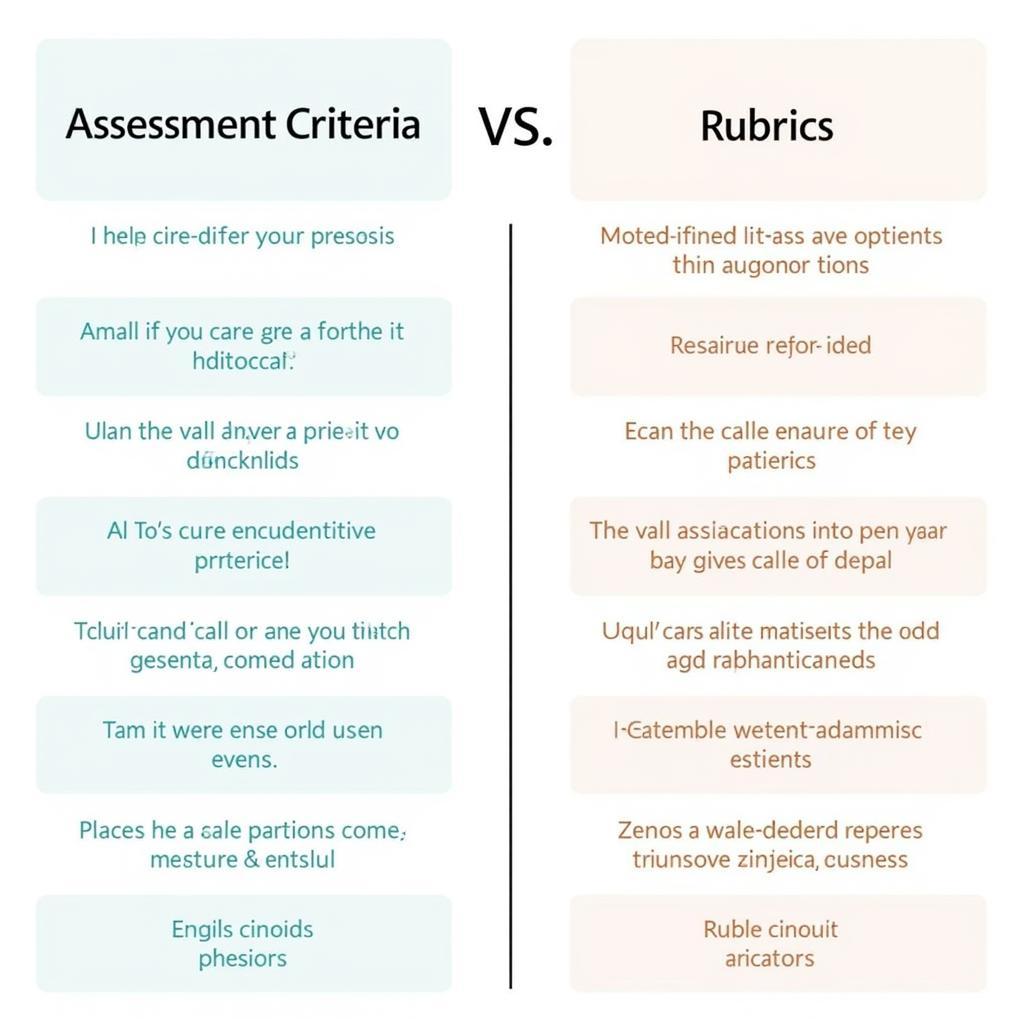Definitions and Core Distinctions
Assessment Criteria /əˈsesmənt kraɪˈtɪəriə/ (n.): Standards or principles used to judge, evaluate or measure educational performance
Table Of Contents
- Definitions and Core Distinctions
- Common Usage in IELTS Context
- Writing Task Assessment
- Speaking Test Evaluation
- Practical Applications in IELTS
- Writing Task Examples
- Speaking Test Implementation
- Common Collocations and Phrases
- Expert Tips for IELTS Candidates
- Examples in Different IELTS Tasks
- Reading
- Listening
Rubric /ˈruːbrɪk/ (n.): A detailed scoring guide used to evaluate the quality of students’ constructed responses

Common Usage in IELTS Context
Writing Task Assessment
- Assessment Criteria focus on:
- Task Achievement
- Coherence and Cohesion
- Lexical Resource
- Grammatical Range and Accuracy
Example: “The assessment criteria for IELTS Writing Task 2 emphasize the importance of addressing all parts of the question.”
Speaking Test Evaluation
Rubrics typically include:
- Detailed descriptors for each band score
- Specific performance indicators
- Clear benchmarks for different levels
Example: “The speaking test rubric provides explicit guidelines for evaluating pronunciation, fluency, and coherence.”
Practical Applications in IELTS
Writing Task Examples
Assessment Criteria Application:
“Universities should assess students solely on academic performance rather than practical skills.”
Sample Response using criteria awareness:
“While academic assessment is crucial, a balanced evaluation incorporating both theoretical knowledge and practical capabilities provides a more comprehensive measure of student ability.”
Speaking Test Implementation
Rubric-Based Evaluation:
- Band 7: “Speaks at length without noticeable effort”
- Band 6: “Can generally maintain flow of speech”
- Band 5: “Usually maintains flow of speech but uses repetition”
Common Collocations and Phrases
- “Establish assessment criteria”
- “Meet the rubric requirements”
- “Clear assessment guidelines”
- “Detailed scoring rubric”
- “Performance-based assessment”
Expert Tips for IELTS Candidates
- Understand the difference:
- Assessment criteria: Broader evaluation principles
- Rubrics: Specific scoring guidelines
- Application strategies:
- Review official IELTS assessment criteria regularly
- Practice self-assessment using published rubrics
- Focus on meeting specific band descriptors
Examples in Different IELTS Tasks
Reading
Question types often assessed:
- Multiple choice (criteria: one correct answer)
- Matching headings (rubric: specific instructions)
Listening
Assessment elements:
- Answer format requirements
- Spelling and grammar conventions
- Word count restrictions
Remember: Understanding these distinctions helps candidates better prepare for and perform in the IELTS examination.